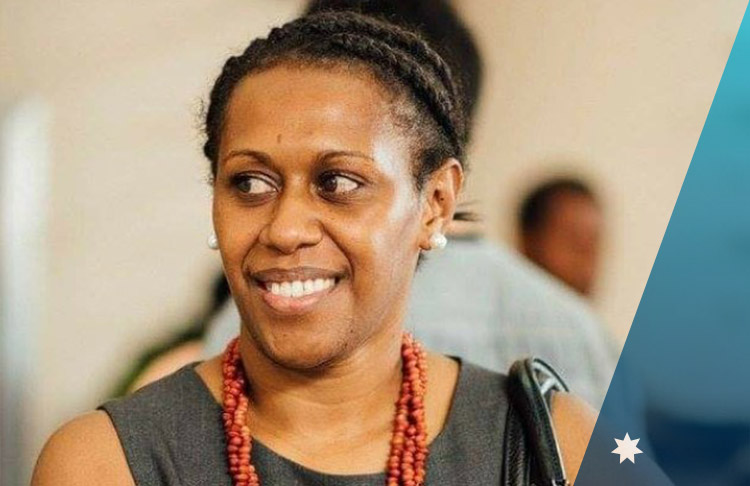
The 16 Days of Activism against Gender-Based Violence is an international civil society led campaign that takes place each year, commencing on 25 November, the International Day for the Elimination of Violence against Women. Ending on 10 December; Human Rights Day, the 16 Days of Activism focuses upon violence against women as the most pervasive breach of human rights worldwide. To acknowledge the significant work being undertaken, we speak with Jennifer Kalpokas Doan, an Australia Awards alumna who graduated in 2007 with a Master of Public Administration from the Australian National University. Jennifer is the Executive Director (ED) at Balance of Power (BOP), an innovative project supporting Pacific Island countries achieve their objectives of inclusive and effective leadership in line with national policy frameworks.
BOP’s work aims to understand deeply entrenched social norms around the role of women and how they are perceived in society. The work of BOP focuses on shifting these norms and beliefs to a point where women are viewed as legitimate leaders who have the same capabilities to perform the same roles and functions and hold office as men.
Jennifer explains ‘my role provides strategic programming advice to the senior management team, not just on the overall management of the entire initiative, but with a particular focus on the implementation and overall performance of the in-country activities in Vanuatu, Tonga and Fiji. The role is also responsible for management oversight of day-to-day operations, budgets and human resources. From time to time, the role also supports the other Executive Director on strategic regional partnership engagements‘.
Jennifer believes that the 16 Days of Activism provides an opportunity for activists working at ending violence against women and girls (VAWG) to be brought to the forefront, and to showcase the importance of the work they are doing. This particular initiative also provides a time when communities and society can be educated about the realities that victims and survivors experience, and why resorting to violence is not only a false misconception of power and authority, but a crime.
‘In Melanesia, in particular, there is a strong sense of ownership over women which culture and beliefs gives to men. This entitlement belief often leads to viewing women as property to be treated in whatever way is seen as appropriate, including the use of force and violence, to control behaviour. Because this is based on deeply entrenched and taught beliefs and norms, it is particularly difficult to tackle the issue of ending violence against women and girls in Melanesia, as with other parts of the world‘ Jennifer further explains.
Although there is still much work to be done Jennifer does believe there has been a positive shift towards inclusivity and human rights, noting both the efforts made by community-based organisations, government, churches and even through the custom governance system. This, alongside strengthened governance structures and legislature that have come into effect in the last 10 years, has seen a greater deterrence towards acts of violence, ‘however this is nowhere near what we would like it to be. At the outward facing end of society, institutions, legal frameworks, government and civil society do their part to address what is an existing problem. But for long term, deep, lasting transformational change to happen, we ourselves have to be the model of the behaviour change we want to see, and teach our children to live that way. Then and only then will violence against women and girls cease to be largely accepted as a normal part of society, but rather a shocking anomaly‘ Jennifer adds.
